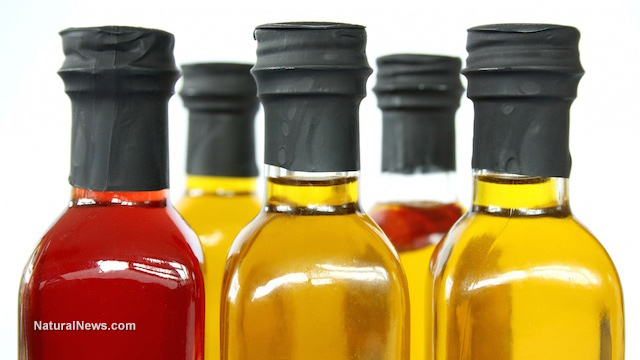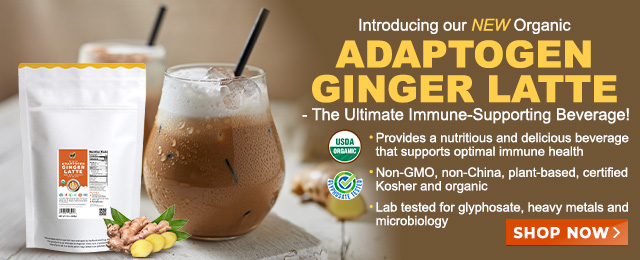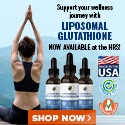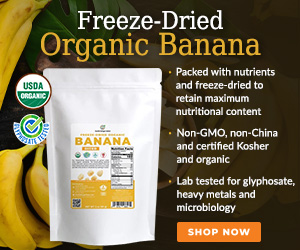Italy's top olive oil companies come under fire for defrauding customers with inferior oils
Wednesday, November 18, 2015 by: Jennifer Lea Reynolds
Tags: olive oil, adulterated products, food quality

- Newly released JFK files reveal Pentagon's role in creating Lyme disease and covid in the same lab
- Trump nominates VACCINE ZEALOT Susan Monarez to lead the CDC, sidelining RFK Jr.'s reform efforts
- Trump's greatest betrayal so far: Accelerating Middle East wars, silencing dissent, and serving Zionist masters
- STARDUST, a secretive Israeli-US startup, plans risky solar geoengineering experiment to BLOCK OUT THE SUN
- The hidden dangers in your kitchen: How cooking methods impact diabetes, cancer and aging
- Festive flavors: The sweet history, nutritional profile and health benefits of pecan pie
- Elon Musk: Aliens could be here on Earth RIGHT NOW
- Dr. Mike Yeadon releases 15-minute testimony - WATCH - about genocidal intent of COVID “vaccines”
- The forgotten hormone hero: How vitamin C quietly balances mood, stress and reproductive health
- Sugarcane extract superior to cholesterol-lowering drugs?
- HUGE: Putin claims 2020 election fraud in U.S. sparked Ukraine war, calls for peace talks with Trump
- California's social media censorship law struck down: A victory for free speech or a threat to online safety?
- Reclaim your health: How midlife exercise reverses years of inactivity
- Chris Rufo finally reveals abuse liberals unleashed on his wife and young kids...
- Pilots report mysterious lights 'moving at extreme speeds' across Oregon skies
- Florida takes a stand: DeSantis proposes permanent ban on mRNA vaccine mandates
- Arkansas embraces medical freedom with landmark ivermectin law
- Rep. Nancy Mace introduces bill to ban biological males from female facilities on federal property
- Newly released JFK files reveal Pentagon's role in creating Lyme disease and covid in the same lab
- Elon Musk: Aliens could be here on Earth RIGHT NOW
- Reclaim your health: How midlife exercise reverses years of inactivity
- Trump reverses course on Gaza plan, says “nobody is expelling Palestinians”
- EPA advisor admits the agency is funneling billions to climate groups ahead of Trump’s return to White House
- Big Pharma's $8 Billion bribery scheme exposed: how doctors are pushed to prescribe junk science, not heal
- Space war brewing? Russia threatens to destroy Starlink satellites
- A lack of integrity in Academia: Harvard professor found GUILTY of fraudulent research to promote CRT theory
- Survival 101: Effective EMF blocking techniques
- Rep. Nancy Mace introduces bill to ban biological males from female facilities on federal property
- Mike Adams Sermon 66: God will DESTROY ISRAEL for its wickedness
- Pilots report mysterious lights 'moving at extreme speeds' across Oregon skies
- 5 Simple steps to boost your brainpower: How to strengthen executive function in a distracted world
- Historian warns Israel may be entering an “IRREMEDIABLE DECLINE”
- Florida takes a stand: DeSantis proposes permanent ban on mRNA vaccine mandates
- RFK Jr.'s SSRI antidepressant investigation sparks liberal meltdown, exposes Big Pharma's dangerous game
- OpenAI whistleblower who dissented against how the company trained ChatGPT found dead
- Sugarcane extract superior to cholesterol-lowering drugs?
- EPA advisor admits the agency is funneling billions to climate groups ahead of Trump’s return to White House
- The Health Ranger releases “Vaccine Zombie” song and music video, using AI-animated zombies for the music video
- California's social media censorship law struck down: A victory for free speech or a threat to online safety?
- Dr. Mike Yeadon releases 15-minute testimony - WATCH - about genocidal intent of COVID “vaccines”
- The pandemic as a tool for INDOCTRINATION: Understanding “The Indoctrinated Brain” by Dr. Michael Nehls
- Mike Adams releases country western hit single: Goin’ Back in Time is Comin’ Home
- Mike Adams releases music poetry sensation: A Child of God
- RFK Jr. clears key hurdle: Sen. Susan Collins backs controversial HHS nominee, signaling a new era for health policy
- Florida takes a stand: DeSantis proposes permanent ban on mRNA vaccine mandates
- Unpacking the Lies That We’ve Been Fed – new song and music video released by Mike Adams, the Health Ranger
- Mike Adams releases new song and music video: Nothing More Disgusting Than a Globalist
- Congratulations to the FULLY UNVACCINATED as you resisted the COVID-19 PROPAGANDA MACHINE fueled by over $100 BILLION
- “Why we influenced the 2020 elections”: Facebook files reveal the coordinated effort to bury the Hunter Biden laptop story
- Michigan sheriff announces criminal investigation into 2020 election crimes, Dominion Voting Systems
- Israeli soldiers accused of even more torture and abuse in the West Bank
- Migrants are taking advantage of recent hurricanes to scam residents and loot their homes
- House Intelligence Committee calls for the ARREST and PROSECUTION of Dr. Anthony Fauci
- Peter Rost exposes Big Pharma corruption in his book “The Whistleblower: Confessions of a Healthcare Hitman”
- Red Cross issues warning to stop blood plasma donations from vaccinated people
- Scientists confirm: GENIUS brain function can be spontaneously unleashed in humans without any apparent cause
- EPA advisor admits the agency is funneling billions to climate groups ahead of Trump’s return to White House
- HYSSOP: What research reveals about the health benefits of this ancient holy herb
- Two containers with completed ballots fall out of truck in Florida
- Fully vaccinated about to see “tsunami” of illness and death, warns virologist
- Global leaders unite to clamp down on “misinformation” with UN-backed Cascais Declaration
- BREAKING: 2025 NDAA authorizes mandatory military draft of WOMEN across America… as Pentagon pursues global NUCLEAR war with both Russia and China at the same time
- Michael Yon warns of a ZIONIST TAKEOVER in Trump’s second administration
- BOMBSHELL: DNA testing kits are a SCAM to develop ethnic-specific bioweapons
- Ozempic and Wegovy weight loss drugs are injectable LIZARD VENOM PEPTIDES that may unleash a devastating wave of organ failure… side effects align with symptoms of SNAKE BITES
- Israeli soldiers accused of even more torture and abuse in the West Bank
- These 13 countries just signed an agreement to engineer a global FAMINE by destroying food supply
- NASA admits that climate change occurs because of changes in Earth’s solar orbit, and NOT because of SUVs and fossil fuels
- RFK Jr. clears key hurdle: Sen. Susan Collins backs controversial HHS nominee, signaling a new era for health policy
- Sermon 30: How Jesus reveals Caesar’s FAKE CURRENCY and FALSE AUTHORITY
- Coriander seeds: Ancient medicine backed by modern science
- Arizona officials claim Maricopa County needs 10-13 days to tabulate results of the election
That's right – you've been duped on both the health and financial front; recent investigations have revealed that the cheaper, more acidic kind of olive oil – which typically involves a process that uses chemicals and industrial refining – has been passed off as high-quality extra virgin olive oil, which doesn't undergo such a process. The brands under investigation are ones most of you likely have in your kitchen cabinets right now: Bertolli, Santa Sabina, Primadonna, Carapelli, Coricelli and Sasso.(1)
So much for trusting food labels and putting your faith in esteemed brands that have become a cooking staple, thinking they have your health in mind.
Natural News has reported on olive oil mislabeling and consumer deception in past
Interestingly, Natural News has reported on these issues in the past, prior to mainstream media's more recent investigation announcements.Earlier this year, we wrote about how Deoleo USA, Inc., maker of the Bertolli and Carapelli brands, deceived consumers by labeling olive oil that was made with refined oils and cheap fillers as "extra virgin." In that instance, plaintiff Scott Koller maintained that the oils actually came from other countries, were then brought into Italy for processing, and then falsely sold to U.S. customers as premiere, healthy varieties.(2)
Additionally, even going back as far as 2012, Natural News also reported the following:
As much as 50 percent of the olive oil sold in the U.S. is not actually pure olive oil, as some brands claiming to be "extra-virgin" or "100 percent Italian," for instance, have actually been adulterated with toxic rapeseed oil, more popularly known as canola oil, soybean oil, and other low-grade oils.(3)
Therefore, while this recent news about the multiple olive oil brands that are under investigation is certainly eye-opening, it's unfortunately not entirely new. Consumer deceit abounds, and we've written about it for ages. It's a shame not only because people deserve to eat what they're paying higher prices for, but because they should also enjoy what's good for their health instead of being tricked into eating something that isn't good for them.
Consumers have been missing out on health benefits of extra virgin olive oil
Extra virgin olive oil has been linked with rapidly destroying cancer cells, reducing the risk of Alzheimer's disease, and helping to fight cellular aging and osteoporosis. In fact, the Mediterranean diet – in which olive oil is a staple – is advised for those wanting to keep cellular aging at bay. It's been shown that a diet rich in fruits, fresh fish, olive oil and vegetables is ideal for protecting cells and warding off health problems like stroke, high blood pressure and heart disease.(4,5,6)According to Codacons, Italy's main consumer association, compensation from the companies involved should be given to those who purchased the lower quality oil. "We invite any family that bought oil from any of the firms caught up in the investigation to demand compensation of up to 5,000 euros," says the association's president, Carlo Rienzi. "If these offences are proven, the cost to consumers is enormous – not only the betrayal of trust but also the economic damage for people who have paid extra for an inferior product."
Sadly, it appears as though making things in haste and finding shortcuts that churn out products in the name of making profit, regardless of how deceitful it is, is commonplace. Elga Baviera, a biologist and expert on food safety, says, "The food production business is full of scams, notwithstanding the efforts of authorities to contain the phenomenon. It's a business worth billions of euros a year."(1)
Sources for this article include:
(1) Telegraph.co.uk
(2) NaturalNews.com
(3) NaturalNews.com
(4) Sciencedaily.com
(5) Sciencedaily.com
(6) Sciencedaily.com
Olive oil at FETCH.news
Get independent news alerts on natural cures, food lab tests, cannabis medicine, science, robotics, drones, privacy and more.
Take Action: Support Natural News by linking to this article from your website
Permalink to this article:
Embed article link: (copy HTML code below):
Reprinting this article:
Non-commercial use OK, cite NaturalNews.com with clickable link.
Follow Natural News on Facebook, Twitter, Google Plus, and Pinterest
Science News & Studies
Medicine News and Information
Food News & Studies
Health News & Studies
Herbs News & Information
Pollution News & Studies
Cancer News & Studies
Climate News & Studies
Survival News & Information
Gear News & Information
News covering technology, stocks, hackers, and more



"Big Tech and mainstream media are constantly trying to silence the independent voices that dare to bring you the truth about toxic food ingredients, dangerous medications and the failed, fraudulent science of the profit-driven medical establishment.
Email is one of the best ways to make sure you stay informed, without the censorship of the tech giants (Google, Apple, Facebook, Twitter, YouTube, etc.). Stay informed and you'll even likely learn information that may help save your own life."
–The Health Ranger, Mike Adams













































